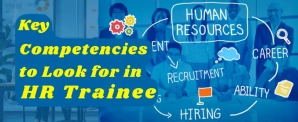
Starting a New Career! Find the Strategies for a New Beginning
It can be exciting when you want to Start a New Career. It can also be overwhelming and daunting. It's easy to stay on course, especially when our jobs are doing great; however, sometimes, people feel like they can launch into a whole new career and push their corporate identities into newer spheres. While this is good, it's essential to understand the nuances of starting a new job. This article will explore the strategies and limitations of starting a new career from scratch. It will help everyone looking to start a new career.
Why Do People Start a New Career?
There are many reasons why a person would start a new career. Let’s explore them:
Career growth: A new career might mean growth from the old one. People often start a new career if they feel the move would mean better job opportunities, networks, and satisfaction.
Passion: People often realize that their passions do not match their jobs. The boldest amongst them follow their passions into new careers.
Skills and talents: People often change careers when they realize they are naturally suited to thrive in specific industries because of their abilities. We have medical professionals who have become marketers, manufacturers who become software developers, and architects who become pastors. Career changes can be wild.
Finance: Finance is a core consideration when considering a new career. People switch jobs in the hope of more significant paydays.
Life change: Life changes like marriage, death of a family member, children, and change of city or country can push people to start a new career.
Work-life balance: People switch careers if they feel the new path will allow for a more flexible work-life balance.
Personal development: People switch careers if they know the switch will drive them to become better, more intelligent, more passionate versions of their present selves.
Business: People start a new career if they feel the experience in the new job will help them become better entrepreneurs.
Looking to Start a New Career: Strategies You Should Know
Self-Assessment
When you want to start a new career, you must conduct a thorough, honest, and objective self-assessment. Before entering the job market, take time for self-reflection. Identify your strengths, skills, interests, and values. Understanding these aspects sets the foundation for making informed career choices.
When you assess your strengths, skills, and values, you can decide if your present career is for you or if the grass is greener on the other side.
Researching Career Options: Explore and Decide
Explore various industries to discover where your skills align and growth potential exists. Stay informed about emerging trends and in-demand skills to make excellent decisions. While you may want to move into a new industry, an industry has many spheres. For example, if you're going to start a career in tech, you need to decide if you want to focus, first, on frontend, backend, or database management. Your decision will determine the programming languages, framework, and developers you will have a rapport with.
How to Start a New Career Path: Setting Clear Goals
You must establish precise, achievable short- and long-term goals. Create a timeline with measurable milestones to track your progress. From certifications to skills and work, you must have a timeline to achieve your goals. People often get distracted when pursuing a new career. They may never do much with the time demands of their old career, family demands, and life. You must set up environments to foster development in your new job.
Tips for Starting a New Career from Scratch: Developing Skill
Identify the skills required in your chosen field and invest in your professional development. Leverage online courses, workshops, and certifications.
Networking
Build professional relationships and networks through industry events, social media, communities, and forums.
Resume and Cover Letter Crafting: Showcase Your Value
Tailor your resume and cover letter to highlight your transferable skills. Build mind-blowing portfolios to show you have what it takes to deliver excellent work in your new field.
Conclusion
Navigating a new career demands self-awareness, strategic planning, and continuous learning. Individuals can successfully transition through self-assessment, meticulous research, and clear goal-setting. Skill development, networking, and a compelling narrative in resumes and portfolios further enhance prospects. As you begin looking to start a new career and build a new career path, may your new beginnings be marked by success and fulfillment in your chosen path.
Latest JobsView All
-
 Head - Accounts & Finance @ Delhi... New Delhi 24 Nov 2025
Head - Accounts & Finance @ Delhi... New Delhi 24 Nov 2025Ascent Human Solutions Pvt. Ltd..
-
 Technical Support Engineer/Manager- Adh... Delhi 22 Nov 2025
Technical Support Engineer/Manager- Adh... Delhi 22 Nov 2025Ascent Human Solutions Pvt. Ltd..
-
 Executive / HR Executive - Human Resour... New Delhi 22 Nov 2025
Executive / HR Executive - Human Resour... New Delhi 22 Nov 2025Ascent Human Solutions Pvt. Ltd..
-
 Executive sales... New Delhi 20 Nov 2025
Executive sales... New Delhi 20 Nov 2025Ascent Human Solutions Pvt. Ltd..
-
 Assistant/Deputy Manager - Sales DEA (D... Gurgaon 21 Nov 2025
Assistant/Deputy Manager - Sales DEA (D... Gurgaon 21 Nov 2025Ascent Human Solutions Pvt. Ltd..
RELATED ARTICLES
-
Law & Compliances Integrating Local Law 152 Gas Inspections Into Your Annual B... Explore
-
Human Resource Key Competencies to Look for in HR Trainees Explore
-
-
Performance management Employee Happiness and Workplace Happiness 2025 Explore
-
Performance management Boosting Employee Engagement and Knowledge Retention through... Explore
-
Human Resource Why Employee Voice Matters? Explore
-
-
-
Human Resource HR Planning - How to Manage Your Leave Policy Structure Explore
-
Human Resource Mastering Leadership: The Three C's of Success Explore
-
-















